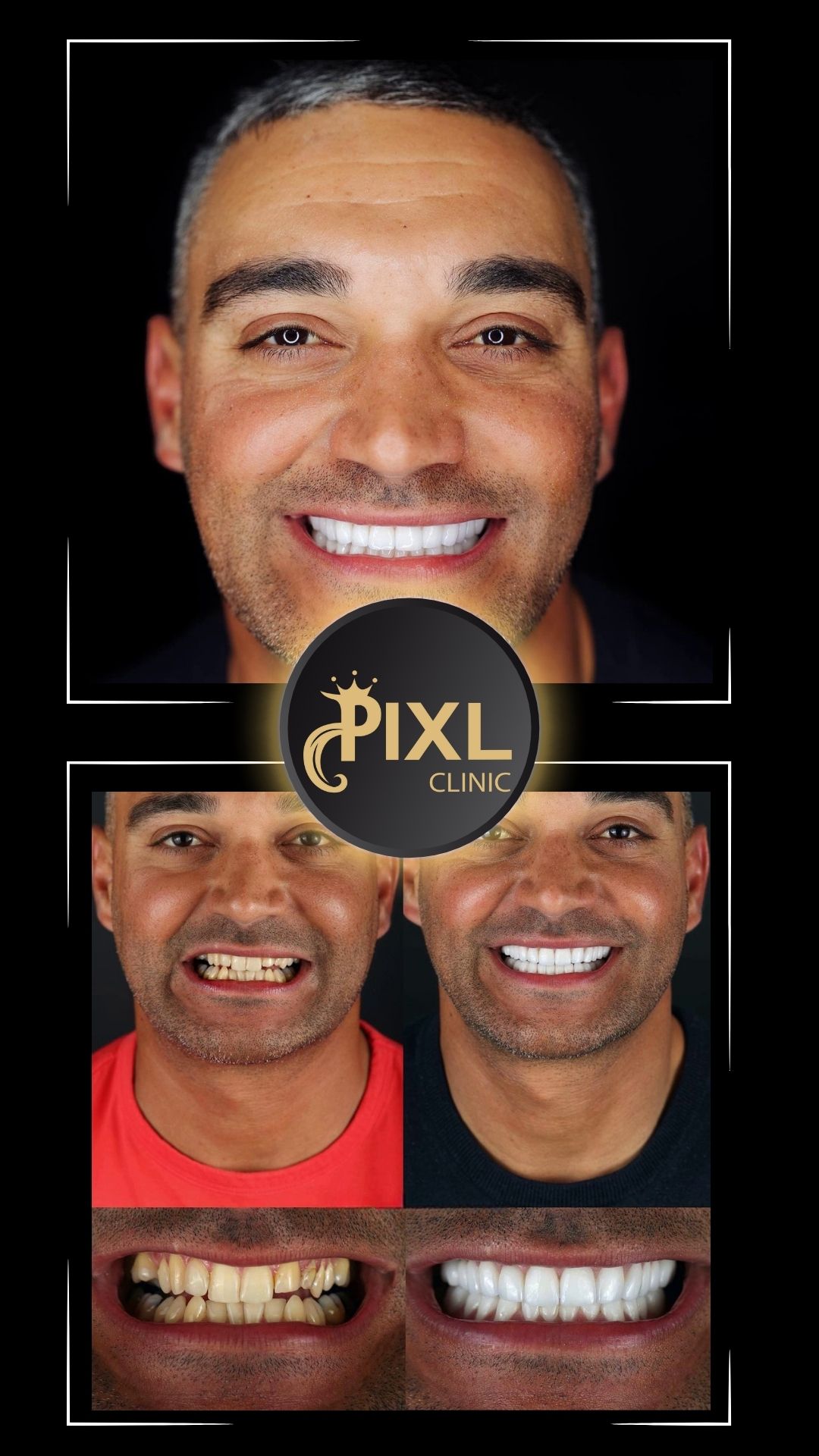Dental Implant Failure: Myths, Facts, and Prevention Strategies
Dental implants have become a popular and reliable solution for replacing missing teeth, offering durability, natural aesthetics, and functionality. However, the possibility of dental implant failure can be a source of anxiety for patients considering the procedure. Understanding the myths, facts, and prevention strategies surrounding dental implant failure can help you make informed decisions about your oral health.
Myths About Dental Implant Failure
1. Implants Always Fail Over Time
Myth: Many believe that dental implants are temporary and destined to fail over time.
Fact: With proper care, dental implants can last a lifetime. Studies show success rates of over 95% when implants are maintained through good oral hygiene and regular dental visits.
2. Smokers Can’t Have Implants
Myth: Smokers are often told they are ineligible for dental implants.
Fact: While smoking increases the risk of implant complications, it does not automatically disqualify someone. A committed cessation plan and careful post-operative care can help smokers achieve successful outcomes.
3. Dental Implants Are Painful and Risky
Myth: The process of getting implants is excruciating and fraught with complications.
Fact: Modern dental techniques ensure that the procedure is minimally invasive and relatively painless. Post-surgical discomfort is manageable with prescribed medications, and complications are rare when performed by skilled professionals.
4. Implants Are Rejected by the Body
Myth: The body often “rejects” dental implants, similar to organ transplants.
Fact: Dental implants are made of biocompatible materials like titanium, which integrate naturally with the jawbone. Cases of implant rejection are extremely rare and often linked to other factors like infections or allergies.

Facts About Dental Implant Failure
1. Early Implant Failure
Early failure occurs within the first few months after placement. Causes may include:
- Poor surgical technique.
- Inadequate bone integration (osseointegration).
- Infections, such as peri-implantitis.
2. Late Implant Failure
Late failure happens after the implant has been in place for months or years. Common reasons are:
- Chronic infections.
- Excessive stress on the implant due to grinding (bruxism) or improper bite alignment.
- Progressive bone loss around the implant.
3. Health Conditions and Habits Matter
Conditions like diabetes, autoimmune disorders, and osteoporosis can increase the risk of implant complications. Additionally, habits such as smoking and poor oral hygiene are leading contributors to implant failure.
4. Peri-Implantitis is a Major Cause
Peri-implantitis, an inflammatory condition that affects the soft and hard tissues surrounding an implant, is a common cause of late-stage failure. It is usually caused by bacterial infection and plaque buildup.
Prevention Strategies for Dental Implant Failure
Preventing implant failure involves proactive care and addressing potential risk factors. Here are some key strategies:
1. Choose an Experienced Implant Specialist
Selecting a skilled and experienced dentist or oral surgeon is crucial. A professional with expertise in implantology will assess your individual needs, use advanced techniques, and minimize the risk of complications.
2. Maintain Excellent Oral Hygiene
Good oral hygiene is essential for implant success. Brush and floss regularly, and consider using an antibacterial mouthwash to reduce the risk of infections.
3. Attend Regular Dental Checkups
Routine checkups allow your dentist to monitor the health of your implants and surrounding tissues. Early detection of issues like peri-implantitis can prevent long-term complications.
4. Avoid Smoking
Smoking impairs blood flow and slows down the healing process, increasing the risk of implant failure. Quitting smoking, even temporarily, can significantly improve implant success rates.
5. Manage Health Conditions
Control systemic health conditions such as diabetes by following your doctor’s advice and maintaining a healthy lifestyle. Well-managed health reduces the likelihood of implant-related complications.
6. Wear a Night Guard if Necessary
If you grind your teeth at night, a custom night guard can protect your implants from excessive stress and prolong their lifespan.
7. Follow Post-Operative Care Instructions
Adhering to your dentist’s post-surgical care instructions is critical. This includes taking prescribed medications, eating soft foods, and avoiding activities that could disrupt the healing process.
What to Do if a Dental Implant Fails
If you experience signs of implant failure—such as persistent pain, swelling, or loosening of the implant—contact your dentist immediately. Depending on the severity of the issue, treatments may include:
- Cleaning and treating infections.
- Bone grafting to restore lost bone density.
- Replacing the implant with a new one after proper healing.
Conclusion
Dental implant failure, though uncommon, can occur due to various factors. By separating myths from facts and adopting proven prevention strategies, you can significantly reduce your risk of complications and enjoy the long-term benefits of dental implants. Remember, the key to success lies in choosing a qualified professional, maintaining good oral hygiene, and addressing any underlying health conditions. With the right care, your dental implants can provide a lasting solution to restore your smile and confidence.
For personalized advice and guidance, consult your dentist or oral surgeon to ensure the best possible outcome for your dental implant journey.
Frequently Asked Questions (FAQ) About Dental Implant Failure
What is the success rate of dental implants?
Dental implants have a success rate of over 95% when placed by skilled professionals and maintained with proper care.
What are the most common causes of dental implant failure?
The common causes of dental implant failure include:
- Poor osseointegration (the implant not bonding with the jawbone).
- Infections such as peri-implantitis.
- Excessive stress or trauma on the implant.
- Smoking or poor oral hygiene.
- Underlying health conditions like uncontrolled diabetes or osteoporosis.
Can smoking cause dental implants to fail?
Yes, smoking increases the risk of implant failure by reducing blood flow to the gums, impairing healing, and increasing the likelihood of infections.
How can I tell if my dental implant is failing?
Signs of implant failure include:
- Persistent pain or discomfort around the implant.
- Swelling or inflammation in the gums.
- Loosening of the implant.
- Difficulty chewing or biting.
How can I prevent dental implant failure?
Prevent implant failure by:
- Maintaining good oral hygiene.
- Attending regular dental checkups.
- Avoiding smoking.
- Managing systemic health conditions like diabetes.
- Following your dentist’s post-surgical care instructions.
Can failed implants be replaced?
Yes, failed implants can often be replaced. The dentist may address the cause of failure (e.g., infection or bone loss) first. In some cases, a bone graft might be needed before placing a new implant.
Are dental implants painful?
The procedure is performed under local anesthesia, so you won’t feel pain during the placement. Post-surgical discomfort is usually mild and can be managed with pain relievers.
Can anyone get dental implants?
Most people are candidates for dental implants. However, individuals with severe bone loss, uncontrolled health conditions (like diabetes), or habits like smoking may need additional treatment or lifestyle adjustments to ensure success.
What is peri-implantitis, and how is it treated?
Peri-implantitis is an infection of the tissues surrounding a dental implant. It can cause inflammation, bone loss, and implant failure if untreated. Treatment includes deep cleaning, antibiotics, and, in severe cases, surgical intervention.
How long do dental implants last?
With proper care, dental implants can last a lifetime. However, the crown (the visible part) may need replacement after 10-15 years due to normal wear.
Do dental implants require special care?
Dental implants require the same care as natural teeth:
- Brush twice daily.
- Floss regularly.
- Use an antibacterial mouthwash.
- Attend regular dental cleanings and checkups.
Can I still get implants if I have bone loss in my jaw?
Yes, but you may need a bone graft to rebuild jawbone density before implants can be placed successfully.
How long does it take for a dental implant to heal?
Healing typically takes 3-6 months, during which the implant integrates with the jawbone (osseointegration).
Is there an age limit for dental implants?
There is no upper age limit for dental implants. However, younger patients must have fully developed jawbones, which typically occurs after their late teens.
What should I do if I suspect my dental implant is failing?
If you notice symptoms of implant failure, contact your dentist immediately. Early intervention can often save the implant or minimize complications.
































